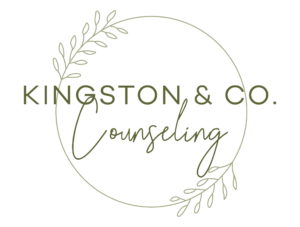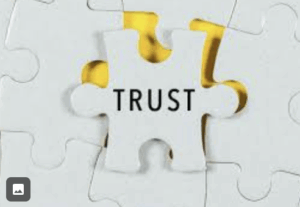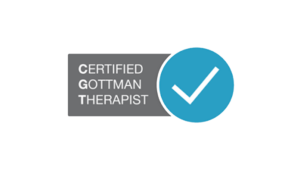In a time where self-love and body positivity are widely discussed, you’d think we’d be living in a world that fully embraces healthy body image. But despite growing awareness, unrealistic beauty standards, social media pressure, and cultural expectations still make it incredibly difficult for people to feel comfortable in their own skin.
Whether it’s the filtered perfection of Instagram, diet culture disguised as “wellness,” or relentless comparisons via social media, our modern world continues to send the message that our bodies are never quite good enough. In this post, we’ll explore the real impact of negative body image, why society still struggles to promote true self-acceptance, and how we can work toward a healthier relationship with our bodies.
The Impact of Negative Body Image
Body image is more than just how we see ourselves—it affects our mental health, self-esteem, and daily life. A negative body image can lead to:
🔹 Anxiety and Depression – Constant self-criticism increases stress, sadness, and self-doubt.
🔹 Disordered Eating – Extreme dieting, binge eating, and unhealthy food rules can develop.
🔹 Avoidance Behaviors – Skipping social events, avoiding mirrors, or refusing to be in photos.
🔹 Low Self-Worth – Feeling defined by physical appearance rather than personality or abilities.
And the saddest part? These struggles don’t discriminate—people of all shapes, sizes, genders, and backgrounds experience body dissatisfaction, thanks to the toxic beauty standards society reinforces.
The Role of Social Media in Body Image Struggles
Let’s be real—social media is a double-edged sword. While platforms like Instagram and TikTok can promote self-acceptance, they also expose us to endless comparison traps and unrealistic beauty ideals.
How Social Media Distorts Body Image:
❌ Heavily Edited & Filtered Images – Many influencers and celebrities don’t even look like their own photos.
❌ Thin & Fit Idealization – Beauty is still often defined by a small waist, toned body, and flawless skin.
❌ Viral Diet & Fitness Trends – The pressure to constantly “fix” your body, even when unnecessary.
❌ Comparison Culture – Scrolling through highlight reels can make you feel less than, even when you know it’s not reality.
And it’s not just young people—adults struggle too. From fitness influencers pushing extreme routines to celebrities setting impossible beauty standards, it’s hard not to feel like you need to change yourself just to fit in.
🧹 Body Image Tip: Curate your social media feed by unfollowing accounts that make you feel bad about your body and instead follow body-neutral, self-acceptance, and mental health advocates.
🔗 Read our blog on the impact of TikTok and social media on mental health to learn more.
Diet Culture is Still Thriving (Even When Disguised as “Wellness”)
For decades, society has pushed thinness as the ultimate goal. And while the body positivity movement has gained traction, diet culture has cleverly rebranded itself as “wellness.”
How Diet Culture is Still Harmful:
❌ “Clean Eating” Obsession – Labeling foods as “good” or “bad” creates food guilt.
❌ Toxic Fitness Trends – Exercise framed as a punishment rather than something enjoyable.
❌ Before & After Photos – Reinforcing the idea that a smaller body is a better body.
❌ Weight Loss as a Measure of Health – Ignoring mental health, genetics, and holistic well-being.
True health and wellness should focus on mental, emotional, and physical well-being—not just aesthetics.
🧹 Body Image Tip: Instead of focusing on how your body looks, shift the focus to how it feels—strength, energy, and overall well-being.
How Can We Build a Healthier Body Image?
The good news? While society still has a long way to go, you can start creating a healthier relationship with your body today.
✅ 1. Practice Body Neutrality
You don’t have to love your body every day—but you can learn to respect and appreciate it for what it does.
✔️ Instead of “I hate my stomach,” try “My stomach allows me to nourish my body.”
✔️ Shift the focus from appearance to function—what your body enables you to do, feel, and experience.
🏆 2. Challenge Beauty Standards
Remember that beauty standards are made up—and they constantly change. What’s “ideal” today may not be tomorrow.
✔️ Recognize that all body types are valid.
✔️ Understand that self-worth is not tied to physical appearance.
💬 3. Speak Kindly to Yourself
How would you talk to a friend struggling with body image? Use that same compassionate voice with yourself.
✔️ Avoid self-deprecating comments about your body.
✔️ Use affirmations like “I am more than my appearance” or “My body deserves kindness.”
🚀 4. Seek Professional Support
If body image struggles are affecting your mental health, therapy can help challenge negative thoughts, build self-confidence, and promote self-acceptance.
✔️ Learn coping strategies to reduce comparison and self-criticism.
✔️ Address underlying emotional challenges linked to body image.
✔️ Gain tools to navigate social media, diet culture, and societal pressure.
🔗 Ready to build a healthier body image? Contact us today for support.
Final Thoughts: You Deserve to Feel at Home in Your Body
Despite progress, our world still struggles to promote a truly healthy body image. Social media, diet culture, and outdated beauty standards continue to create unrealistic expectations. However, by challenging harmful messages, practicing self-compassion, and seeking support, we can learn to respect and appreciate our bodies as they are.
At Kingston & Co Counseling, we believe your worth is not defined by your appearance. If body image struggles are affecting your well-being, we’re here to help.
👉 Want to feel more confident and at peace with your body? Schedule a session with us today.
✨ Your body is enough. Just as it is. Right now. ✨







